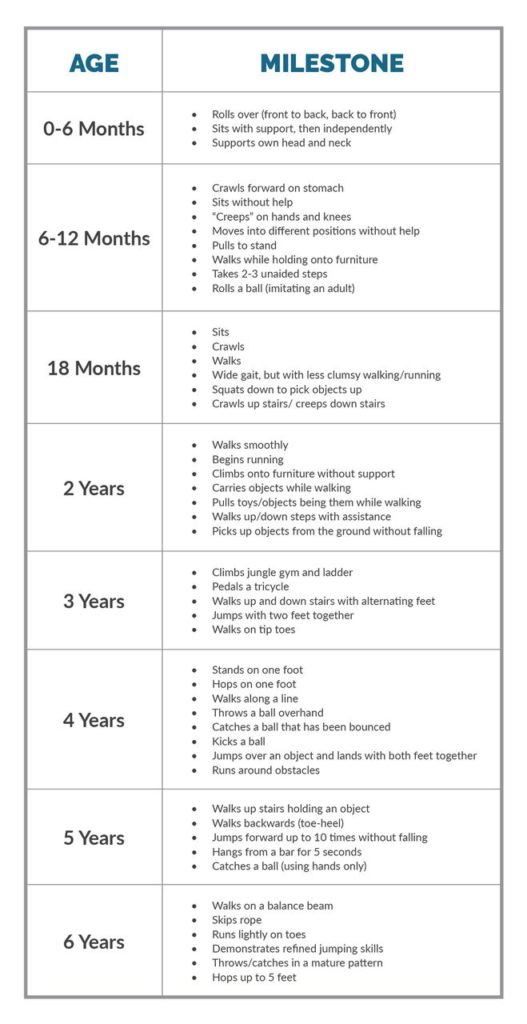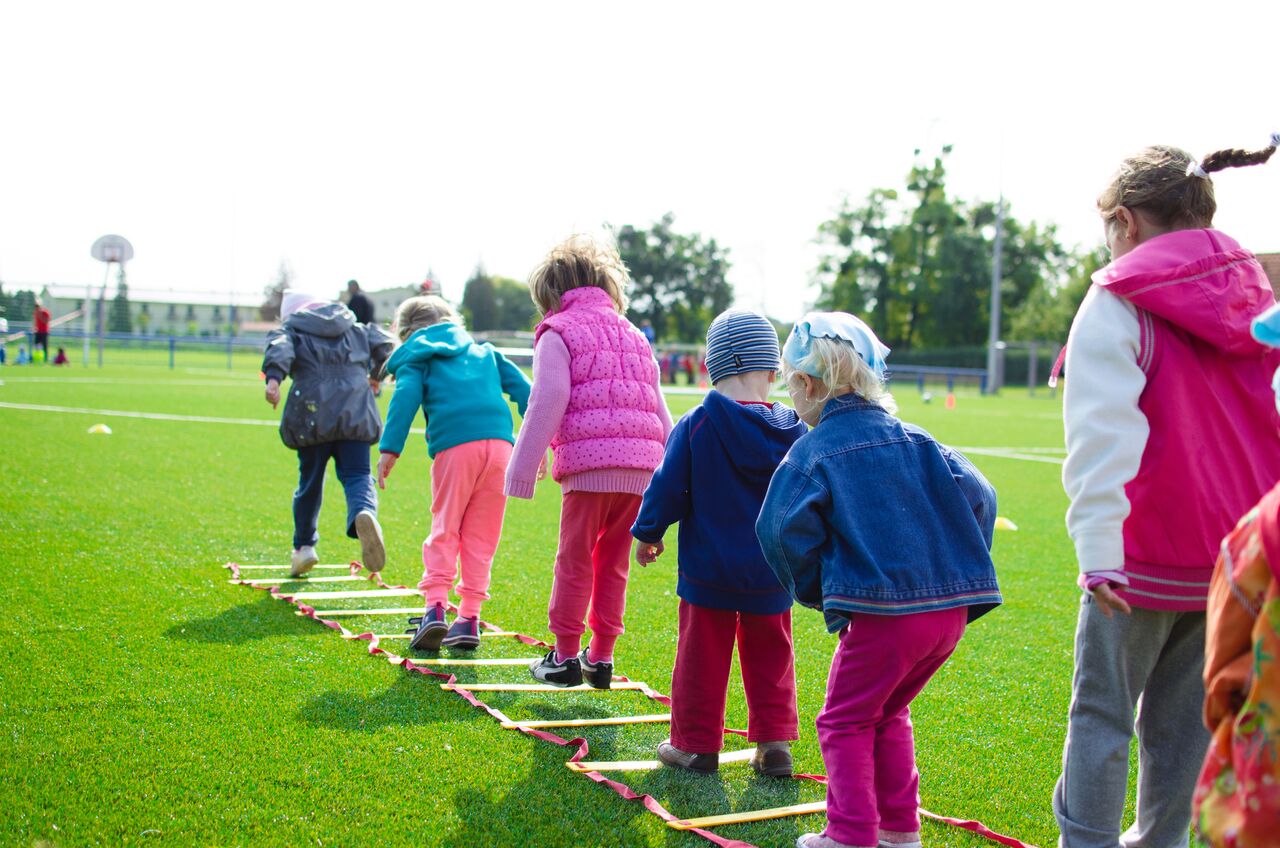Knowing that your child is developing just as they should can be a big stressor in a parent’s life. If you aren’t a doctor, therapist, or health professional, it can be hard to know exactly what normal development looks like. Whether your child is exhibiting signs of gross motor delays Talking with fellow parents can be confusing while getting on the internet to research can be really daunting! I’m here to give you a quick rundown of gross motor development, as well some warning signs to look for if you are concerned. Let’s start!
So, What Exactly IS Gross Motor Development?
Gross motor development refers to the progression of physical skills requiring whole body movement. These skills involve the large, core stabilizing muscles that your child uses when performing everyday actions like sitting upright, standing, walking, and running.
Hand-eye coordination skills are also included, such as throwing, catching, or kicking a ball. In general, this development is predictable. It follows a “top-down” sequence, beginning with the head and neck and ending with the legs. (A good way to remember this progression is the song “Head, Shoulders, Knees, and Toes!”)
As with all development, gross motor development happens at its own pace with each child. It’s important to remember that progression is more important than timing. As your child grows, you should be seeing progress. Beginning in infancy, with each month, babies should be able to get more body parts off of the ground.
The following chart will give you a good sense of what you should typical see within a given age range:

When To Be Concerned About Gross Motor Delays
While it’s important not to compare or to be overly worried, familiarizing yourself with the above milestones will help you determine where your child may be experiencing delays. There are also specific red flags to watch for that will help you to determine if your child needs intervention with gross motor delays. Studies show that children who receive early intervention are far more successful at catching up. The following behaviors are a cause for concern:
- Lack of body awareness/runs into objects
- Difficulties with balance/frequently falls
- Appears clumsy or uncoordinated
- Lacks hand preference
- Using too much/little force
- Only uses one side of the body
As always, if you have concerns about your child’s development and would like to set up a free consultation to discuss your concerns, please reach out! I would love to help you determine your child’s individual needs and whether he needs help with gross motor delays. We are here to support you as you help your child blossom!
Recommended Readings
*The links below are affiliate links. This means that, at no additional cost to you, I will earn a small commission if you click through and make a purchase.
Helping Children Improve Their Gross Motor Skills: The Stepping Stones Curriculum
Activities for Gross Motor Skills Development: Early Childhood
